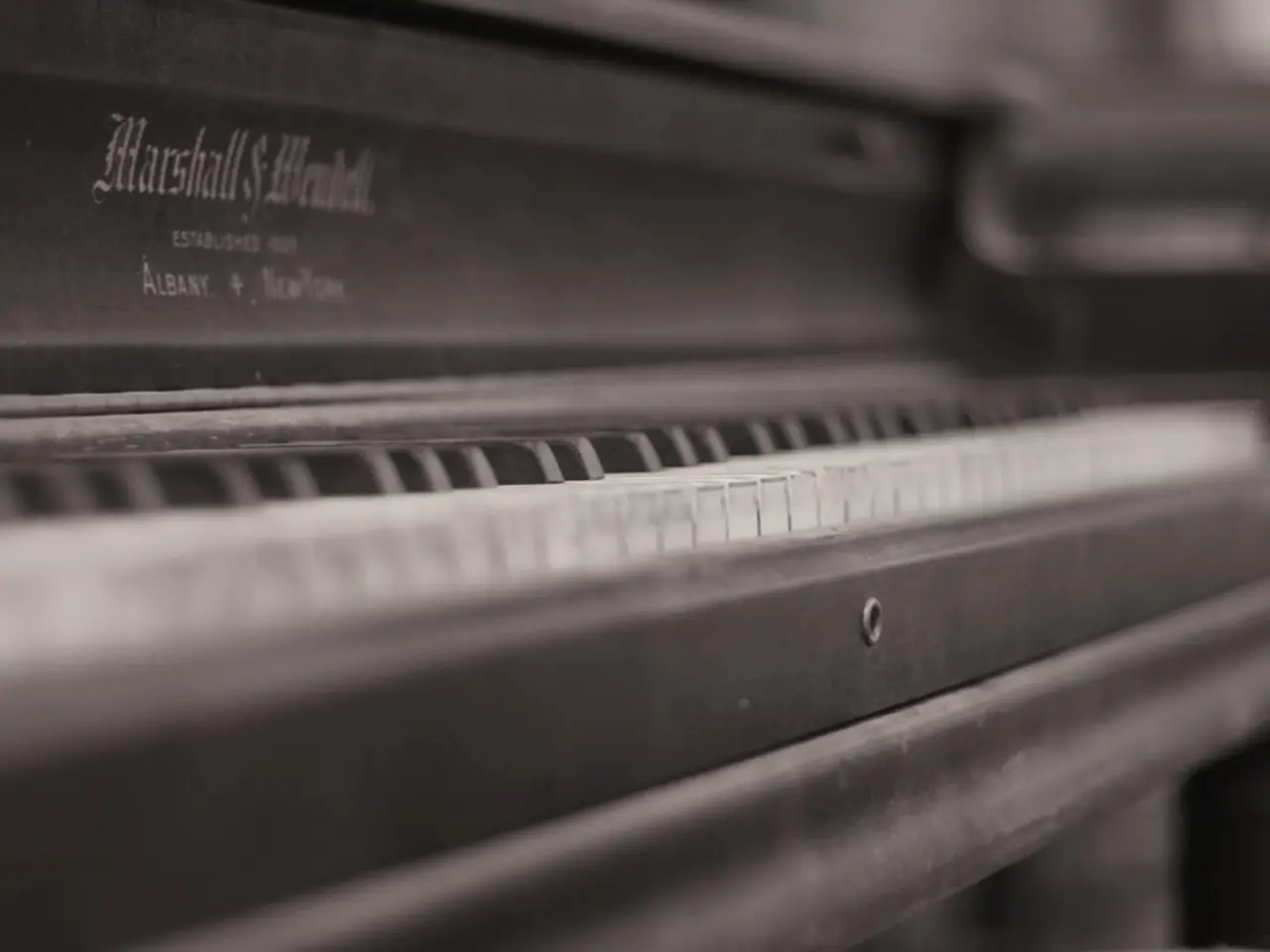Advantages of Electronic Piano Sheet Music for Musicians
In the world of music, a significant shift is underway as more and more musicians embrace digital sheet music. This transformation offers numerous benefits, particularly for pianists, enhancing their learning experience, navigation, and practice efficiency.
Digital sheet music, with its scrolling notes that align with keyboard playing, helps beginners connect reading music with playing the piano more naturally [1]. Software like Piano Wizard transforms MIDI files into game-like lessons, making sight-reading easier and more engaging, potentially lowering dropout rates [1].
Moreover, digital formats enable features such as automatic page-turning via Bluetooth pedals, allowing pianists to turn pages hands-free, maintaining uninterrupted playing during performances or practice [3]. This convenience extends to orchestral musicians as well, who can turn pages in modern tablets with a single click or use a footswitch, eliminating the need to interrupt during a concert [3].
The customization and accessibility of digital sheet music are another key advantage. Players can easily access their scores on tablets or computers, allowing them to annotate, zoom in/out, or change the view to suit their preferences, enhancing clarity and organization during practice [3].
AI integration is another exciting development in digital sheet music. Some tools employ AI to generate accurate transcriptions from audio or MIDI files, providing pianists instant access to new repertoire without manual transcription effort [2].
Opting for digital scores instead of paper ones not only serves personal convenience but is also an objectively sounder choice for the world to make. Digital sheet music keeps materials more organized and consolidated, and an average tablet can easily fit the entire music library of an orchestra [3].
The Brussels Philharmonic Orchestra, famous for the soundtrack for the movie "The Artist," which won an Oscar in 2012, was the first orchestra to go fully digital, setting an example for other orchestras [3]. Before switching to digital sheet music, the orchestra's staff spent several hours a day preparing and copying sheet music [3]. Now, this transition has saved them approximately 25,000 euros annually on supplying paper notes [3].
In conclusion, digital sheet music supports a smoother transition from learning to reading traditional notation, improves practice flow, and integrates technology-driven innovations that enhance the piano learning and performance experience [1][3][2]. Going digital as a musician can save time, make music lessons less chaotic, and even contribute to a greener environment.
Composers can benefit from facilitated sheet music digitalization, as it simplifies the learning process and boosts practice efficiency, potentially leading to new creations. Piano entertainment in digital formats also offers a more engaging experience for pianists and orchestral musicians, fostering better entertainment through technology.





